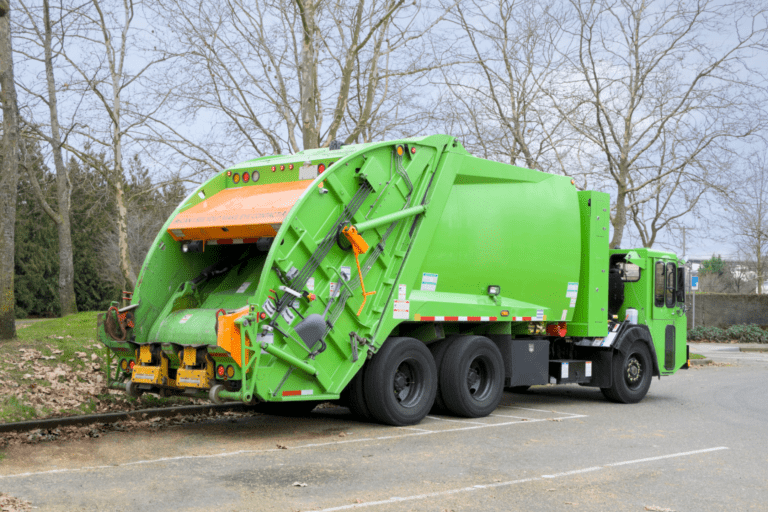Maintaining a fleet of motorcoaches is about more than just protecting the company’s assets. It’s essential to the safety and well-being of drivers and others on the road. The Federal Motor Carrier Safety Administration (FMCSA) sets strict standards for the way that carriers carry out and report the results of inspections. In the past, paper reports were required to be completed at the end of each day. These days, electronic driver vehicle inspection reports (DVIR) help motorcoach companies improve the safety of their fleets and to stay compliant with federal safety regulations and rules.
SAFETY IS PARAMOUNT

It is of the utmost importance to motorcoach companies that their vehicles are safe to operate. Accidents not only cause physical harm and property damage, they also come with a heavy financial burden. What’s more, motorcoach companies that operate in an irresponsible way threaten the safety of the public and open themselves up to potential lawsuits, civil action, and even criminal charges. DVIRs help to ensure that drivers perform inspections and report issues so that repairs and maintenance can be performed.
FMCSA VEHICLE INSPECTION REQUIREMENTS
Before a driver sets out on their trip, they are required by the FMCSA to perform a pre-trip inspection of their vehicle. Any problems, issues, or concerns should be noted and appropriate action taken if the problem is deemed a safety hazard. Likewise, all motor carriers and their drivers are required to report on the condition of the vehicles they operate at the end of each work day.
Each report must identify the vehicle and list all defects or other problems that may affect the safe operation of the vehicle as discovered by or reported to the driver. At a minimum, these inspections must cover the following parts and accessories:
-
Service brakes including trailer brake connections and parking brake
-
Steering mechanism
-
Lights and reflectors
-
Tires, wheels, and rims
-
Horn
-
Windshield wipers
-
Rear view mirrors
-
Coupling devices
-
Emergency equipment
The motorcoach company, or its agent, is required to certify that any defect or deficiency noted during an inspection has been repaired, or that no repair is necessary. This documentation must be maintained by the company for a minimum of 3 months.
HOW A DVIR IMPROVES SAFETY
It’s natural for a driver to just want to get on the road so they can stay avoid delays and stay on schedule. Pre- and post-trip inspections take time and drivers might be tempted to skip steps. When a motorcoach company incorporates a DVIR system into their process, it ensures inspections are performed, documents the results, and improves the safety of individual buses and the fleet as a whole. Above all it insures fleet compliance for the motorcoach company.
IMPROVED VEHICLE CONDITION

According to the National Transportation Safety Board (NTSB), vehicle condition contributes to 13% of all motorcoach crashes and 20% of fatalities due to those crashes. That’s a significant number, and clearly demonstrates the importance of proper maintenance for buses and other commercial vehicles. Daily DVIR requirements, along with a regular maintenance program helps to decrease these numbers by ensuring vehicles are in good working order and that repairs are quickly made.
INSPECTION PROCESS EFFICIENCY
Paper vehicle inspection reports are cumbersome and time-consuming, whereas a DVIR is fast, easy, and convenient. Instead of filling out a long-form paper report, drivers are able to conduct their daily inspection reports using a mobile app on their smartphone. They’re able to add photos and comments in real time and flag any issues so that a work order can be generated to correct the problem. This saves time and ensures that vehicles are repaired quickly so they can be put back in service with little delay.
ANYWHERE, ANYTIME INSPECTIONS
Vehicle inspections are not just limited to before and after a trip. There are times when a motorcoach driver may need to perform an on-the-spot inspection of their bus. Whether these inspections are due to a concern the driver has, or at the request of the motorcoach carrier, they are instantly documented with a DVIR. The vehicle data, driver information, and GPS location are automatically logged on the report to ensure compliance. This ensures that faults discovered mid-trip are reported and addressed properly.
IMPROVED DRIVER COOPERATION
Filling out vehicle inspection paperwork and manually submitting it is a time-consuming and tedious part of a motorcoach driver’s job. DVIRs are faster, easier to complete, and less hassle than paper inspection forms and checklists. Drivers don’t have to spend as much time documenting their inspections since it’s all done digitally and they’re able to instantly and accurately report their findings. It’s also easier to report issues on the road using a mobile DVIR app so that problems can be addressed in real time.
CUSTOMIZED INSPECTION PROCESS
One of the main advantages for a motorcoach company to adopt a stand-alone electronic DVIR instead of paper-based vehicle inspections is customization. Specific areas can be highlighted as priorities within the system, ensuring that every driver addresses them, regardless of which vehicle they’re operating. This creates a safety protocol that’s unique to the company. For example, a motorcoach company may wish to place a higher level of importance on inspecting the brakes, or lights than on other aspects of the vehicle.
TRACKING AND ANALYTICS
Data that is collected through a motorcoach company’s stand-alone electronic DVIR isn’t only used to confirm compliance with FMCSA regulations, it’s also a valuable tool for management. By tracking and analyzing DVIR results, managers are better able to manage their assets, plan for replacements, schedule preventive maintenance and repairs. It also makes it possible to monitor drivers to make sure that they’re performing the required trip inspections and reporting the results in a timely manner.
CONCLUSION
It is absolutely vital that every motorcoach on the roadway is in safe operating condition and that it’s well-maintained throughout its useful life. It’s also imperative that those inspections are documented and that those records are maintained properly. Contact us for a free DVIR demo, or to learn more about how a stand-alone electronic DVIR can improve the safety and efficiency of your motorcoach fleet.









